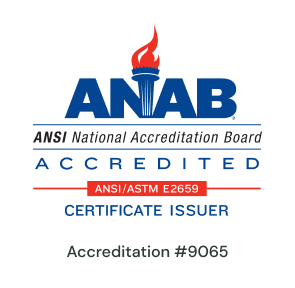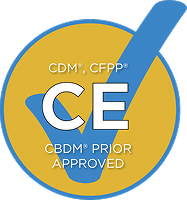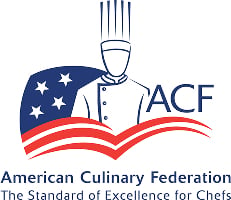All sales on Trust20’s courses are final, non-transferable, and non-refundable.
The Food Allergy Certificate Training is available for a year once purchased and 60 days once you begin the training. There are no extensions to these terms.
The Trust20 Food Allergy Certificate Training (and its assessment) do not have an official prerequisite. It may be completed by anyone seeking knowledge of food allergy awareness.
You will need an 80% to pass the assessment and receive your Trust20 Food Allergy Certificate.
Our Learning Management System works best on Google Chrome. They do not support Safari, and some functionality may be limited on Microsoft Edge and Mozilla Firefox.
In order to ensure that everyone receives the same instruction prior to completing the assessment, the following requisites were developed:
-
You must complete all the course activities to ensure you have received the intended instruction on each learning objective. Each module activity must be completed before you are allowed to move forward, and you cannot access the assessment until all activities have been completed. Previously completed content can be reviewed at any time until the assessment begins.
-
You must pass the course exam with an 80% or higher. You may take the assessment two times to achieve this score. If you do not pass, the course must be purchased again and reset from the beginning.
After purchasing a training, you will receive a welcome email that contains a link to the learning platform. Once you click the link, you will be taken to Trust20’s sign-in page, where you can use your email address and the password you created during checkout to access your course.
Please note that you will have the best experience using Google Chrome. Our Learning Management System does not support Safari, and some functionality may be limited on Microsoft Edge and Mozilla Firefox.
After completing this course, you will be able to:
-
Define a food allergy, identify items that can cause reactions, and explain the dangers of reactions.
-
Differentiate between an allergy and an intolerance and classify how symptoms would affect someone.
-
Define anaphylaxis, explain the importance of following emergency protocols, and practice the steps of the emergency response.
-
Discover allergens listed on food labels and identify potential risks in common items.
-
Explain how allergies can be introduced through food contact, select areas of improper storage and categorize acceptable and unacceptable deliveries.
-
Explain why communication is important to reducing risks and compare different ways to use communication to reduce risks.
-
Recognize how cross contact can occur in preparation and serving, identify areas where care should be taken to reduce risk, and compare responsibilities of staff members.
-
Explain the importance of proper cleaning and hygiene and identify proper cleaning methods.
Trust20’s Food Allergy Certificate Training is $25.
The Trust20 Food Allergy Certificate and Assessment do not have an official prerequisite. It may be completed by any individual seeking knowledge of food allergy awareness.
Yes, access to the course expires one year from the date of purchase. There are no extensions. A course cannot be accessed once it expires, and online courses are not refundable.
You can still access your certificate of completion through your Trust20 account after your course expires.
Yes, there is an assessment at the end of the course. Once you pass the assessment, you’ll be able to download your certificate directly from the site.
Trust20's Food Allergy Certificate Training is an online course that does not require any in-person attendance.
Visit the "Food Allergy Certificate Training" page, select the state you work in from the dropdown on the left, then select “Add to Cart.” Then complete the purchasing screen information. Once you purchase the course, you may begin the training. Once you complete the ten modules and pass the assessment, you will receive a Food Allergy Certificate.
The training course exists to provide and assess an understanding of the fundamentals of food allergy and the methods to protect people with allergies from reactions. The course includes ten modules, including: What Are Food Allergies, Why Does Food Allergy Training Matter, Recognizing Symptoms, Anaphylactic Shock + Emergency Protocol, Methods of Preventing Reactions, Communication, Preparation, and Service/Delivery, as well as Cleaning and Preventing Cross-Contamination.
After you purchase your course, you will receive an email with a direct link to training on the learning platform. Once you log in, select the Food Allergy Training from “My Courses.”
You can also log in by going to login.trust20.co.
Log into your Trust20 account, select “Trust20 Food Allergy,” and view the progress information displayed next to your active course. A percentage of how much of the course has been completed will appear.
Anyone who has completed the training through Trust20 is emailed their certificates upon completing a training course and passing the final assessment. Your certificate will also be available to download through the training portal.
You may refer to the certificate as a “Trust20 Food Allergy Certificate” or “Trust20 Illinois Food Allergy Certificate.” You may say you are a “Trust20 Food Allergy Certificate Recipient.”
You and/or your managers may not say or imply that you are “certified,” “certificated,” “licensed,” “registered,” or “accredited” by the National Restaurant Association. Certificates may not be tampered with, and text or logos may not be added to them, without express written permission from the Association.
Trust20's Food Allergy Certificate Training (and its assessment) is available in English and Spanish.
Anyone who has completed a training through Trust20 and has a current certificate can download or print a certificate. Log on to your account, select the Certificates tab, and choose "Download Certificate" to print. You can also request a certificate be mailed to you for a $10 fee.
The assessment allows two attempts. If you do not pass after the second attempt, you must purchase a new course. Once you pass, the course and assessment will both close.
Online assessment results are available immediately once you have completed it. You have two attempts to pass the assessment. Upon receiving a passing score, you can then print your certificate.
If you have any questions about your assessment score, please contact Trust20 Support.
If you lose or misplace your certificate, you may log into your account to print a copy of the certificate.
We collect your name, email address, phone number, address, and payment information. That information is treated as confidential and not disclosed to parties other than the individuals providing it (you) or the certificate issuer (Trust20).
Before filing a complaint, you should first contact Trust20 Support. During normal business hours, someone will typically respond within a few hours.
If our customer support team cannot help you find a solution, you will find an option to file a complaint in their follow-up email
Once you file a complaint, our team will respond to your concern within seven business days. We will work promptly (within up to 45 calendar days) to resolve any concerns.
If you wish to withdraw your complaint, please submit another form with your request.
You can appeal the certificate decision on your Food Allergy Certificate Training by submitting a written request through THIS LINK.
Trust20 will review your appeal and resolve your request within up to 45 calendar days.
Yes, by completing this training, CDMs can earn one-and-a-half sanitation continuing education (CE) hours for ANFP.
Employers should submit a support ticket through Trust20's Help Center specifically requesting person verification. This ticket should include your full name and Unique ID (listed on the certificate you received upon passing your assessment.) Verification requests will be processed within 48 hours during our support team’s business hours (9am-7pm EST Monday-Friday).
Trust20's products have been accredited by the ANSI National Accreditation Board and therefore adhere to the same standards as ServSafe and Learn2Serve. Our products are accepted by most states that have requirements around training and certification, but you should always check with your employer and/or local health department prior to making a purchase.











-1.png)